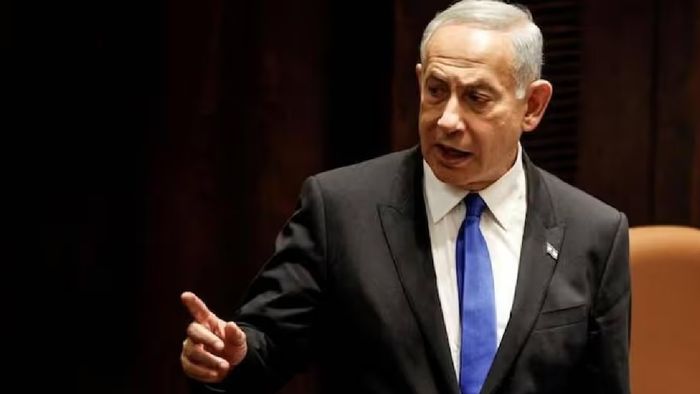Netanyahu confirms Israel's role in pager operation on Lebanon-based terrorist hideouts
Israel's recent military operation in Lebanon targeted Hezbollah hideouts, resulting in numerous casualties. The strike, authorized by Netanyahu, included an attack on Hezbollah leader Nasrallah.

- Nov 11, 2024,
- Updated Nov 11, 2024, 10:38 AM IST
Prime Minister Benjamin Netanyahu has confirmed Israel's role in the strike on hideouts of the Lebanon-based terrorist group Hezbollah.
The pager operation, carried out in September claimed the lives of at least 40 terrorists, while over 3,000 were injured.
Netanyahu's spokesperson Omer Dostri told news agency AFP, "Netanyahu confirmed Sunday that he greenlighted the pager operation in Lebanon."
During a cabinet meeting on November 10, Netanyahu also acknowledged that Israeli forces carried out a precision strike in Beirut, killing Hezbollah chief Hassan Nasrallah, after receiving direct orders from him.
"The pager operation and the elimination of (Hassan) Nasrallah were carried out despite the opposition of senior officials in the defence establishment and those responsible for them in the political echelon," Netanyahu was quoted as saying by The Times of Israel.
Between September 17 and 18 this year, thousands of pagers and walkie-talkies used by Hezbollah, the Iran-backed terror group, exploded, killing around 40 people and injuring over 3,000.
According to sources, the pagers used by Hezbollah members, with no GPS capabilities, no microphones and cameras, were meant to avoid Israeli surveillance.
In the Israeli operation, the pagers detonated across Lebanon within a span of 30 minutes.
Lebanon said earlier this week that it had filed a complaint with the United Nations' labour agency over deadly attacks, blaming Israel for raging an "egregious war against humanity, against technology, against work".
After Israel's operation in Lebanon and the killing of the Hezbollah chief, Iran launched a barrage of missiles at the Jewish nation, targeting its key areas, including military installations.
According to the Islamic Revolutionary Guard Corps (IRGS), Iran used its hypersonic Fattah missiles in the attack against Israel, with over 400 projectiles hitting their targets.
However, Israel rejected Iran's claims, and said that most missiles were intercepted "by Israel and a defensive coalition led by the US".
The Middle East has been witnessing a tumultuous security situation for over one year after Hamas launched an unprecedented attack on Israel, killing about 1,200 people and taking hostage over 200 others. The attack triggered the war in Gaza, which has killed over 41,000 people. Iran's proxies -- Hezbollah in Lebanon, the Houthis in Yemen, and other militias in Iraq and Syria -- also stepped up their attacks on Israel, stoking fears of an all-out regional war.